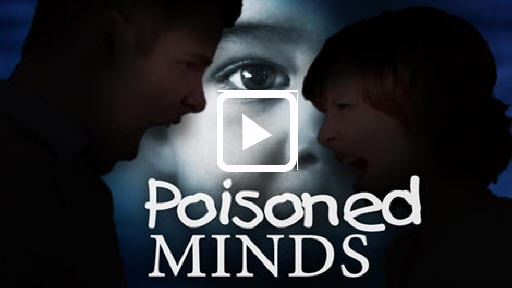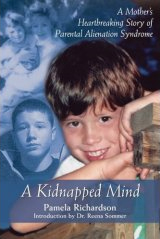![]()
Canada's largest daily newspaper
Parental alienation syndrome leaves bruises deep inside
The Toronto Star, by Susan Pigg, 31 March 2009
In the end, it was one tiny voice that silenced anyone who still had doubts that parental alienation is real and one of the most insidious forms of child abuse.
The voice wasn't real - Dashiell Hart opened his arms wide and threw himself off a Vancouver bridge eight years ago at the age of 16.
But his voice was brought to life at a Toronto conference by his devastated mother, Pamela Richardson, who endured a 12-year court battle with her ex-husband to try to win back the heart and mind of her son.
Dash was just one tiny soldier in the growing army of children who are becoming collateral damage in bitter battles between ex-spouses that are overwhelming Canada's divorce courts, the first Canadian Symposium for Parental Alienation Syndrome (PAS) heard recently in Toronto.
"Over 12 years I had four different sets of lawyers trying to convince the courts my son, who lived less than 10 minutes' drive from me, needed to see the mother who loved and raised him," Richardson told the conference.
"Maybe it's still believed that no parent would wound their child for their own selfish gain. Maybe people still believe that the loss of a parent is not that big a deal - parents get sick, have car accidents, get cancer, they die. But alienated parents aren't dead - and the children know it."
According to Richardson, it was her ex-husband, Peter Hart, a criminal lawyer, who began a concerted campaign to win sole custody of their then 6-year-old son and cut off all contact with his mother, physically and psychologically, shortly after the couple separated in 1989.
"With PAS children there are generally no outward or tangible signs of maltreatment," said Richardson, who later wrote a book called A Kidnapped Mind: A Mother's Heartbreaking Story of Parental Alienation Syndrome>/". "Instead of bruises, the wounds of PAS children are buried deep in their heart."
Hart was granted interim custody of Dash - Richardson blames that on his strong connections in the court system - while the couple sorted out their divorce.
Richardson had visitation rights, but increasingly Hart would claim that Dash was too busy with soccer, sleepovers or homework to see her. She was even asked to stop helping out at Dash's school.
To show her love, she would leave freshly baked cookies on Dash's front doorstep.
The year that Dash was 11, Richardson saw her son for just 24 hours. Every time she asked a judge to enforce her access time, Hart would accuse her of being obsessive and "trying to break up their happy home."
"There are transfers of time followed by transfers of power and children know enough to keep themselves safe," said Richardson.
"A shift takes place in the child's mind. This is the heartbreak of PAS: children are forced to choose between their parents because, in their mind, they've already lost one parent (to the divorce), and they're terrified of losing the other."
Dash went from being a happy, healthy 7-year-old to threatening to jump out the second-storey window of his school at the age of 9. At almost 12, he showed up at court in his father's clothes.
Judges are now starting to tackle PAS head-on, with an increasing willingness to switch custody to the alienated parent and order the children into treatment.
But back in the 1990s, most wouldn't even acknowledge it as a real issue, said Richardson.
After years of being told she was "idiotic," "uncaring" and even "dangerous," Dash grew into a teenager who lashed out constantly at his mother, who by now had remarried and had two young sons.
PAS "has everything to do with who has custody," she said. "It's a crime of calculation and opportunity. Arguing about whether or not PAS is a syndrome or a mental health disorder or abuse just ties everyone up in knots while real children and real families suffer this harm. A child's fundamental right to be loved by both his or her parents is destroyed by PAS."
And the effects are long-lasting, as parental alienation expert and researcher Amy Baker told the conference.
Her study of 40 adults who were alienated as children revealed lifelong battles with low self-esteem, alcoholism and drug abuse, as well as high divorce and suicide rates.
Parental alienation used to be known as "malicious mother syndrome." But it's become a more equal-opportunity form of emotional abuse of children over the last two decades, according to a new study of some 74 Canadian cases, which was released at the conference.
In 24 of the 74 high-conflict divorce cases examined by veteran Toronto family lawyer Gene Colman, men turned their kids against their mothers, while 50 of the cases involved women alienating the kids from their fathers.
Canada's family courts have tended to deal with contentious divorces by awarding sole custody to one parent, believing that joint custody is simply unworkable among ex-partners who are at war.
Many divorce experts, mental health professionals and child advocacy workers, some of whom spoke at the conference, have long argued that this approach encourages parental alienation by treating the children as prizes to be won or lost in bitter battle.
Colman said the study's results confirmed for him that Canada's divorce laws need to be amended to make "equal, shared parenting" the norm in all divorce cases, except when there are extenuating circumstances such as domestic violence, mental health or other issues that make one parent clearly unfit.










